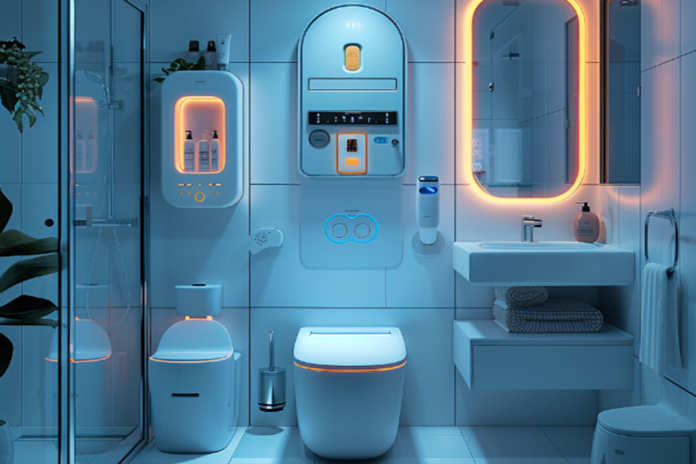
Direct365 has predicted what features are likely be in bathrooms in the future.
The company said it collected worldwide data on bathroom features using Google Patents and Google Search, and paired this industry expert insights.
In total, 139,282 Patents have been filed for the 22 future bathroom features predicted to be commonplace in future bathrooms.
The research revealed that some of the most popular smart features include appliances that are designed to use less energy and conserve water. These include, tankless water heaters, smart thermostat and water recycling.
While these features are designed to help reduce overall energy bills, a statement said that they will also significantly reduce a household’s carbon footprint. For example, tankless water heaters are designed to heat water on demand, reducing standby energy losses.
Additionally, ‘water recycling’ methods which have 49,047 active patents and which are searched for 14,372 times each month by individuals include advancements in smart toilets, smart showers and smart sinks. These appliances are designed to promote water conservation by being able to adjust flow rate and monitor water usage. They will have digital displays to provide real-time feedback on how much water your household is consuming.
Smart speakers and smart mirrors are likely to become commonplace within bathrooms, with 60,000 existing patents.
While smart technology will be incorporated into bathrooms to reduce household carbon emissions, it cited, it will also provide a level of ‘entertainment and ambiance’. Rather than being a purely functional room, future bathrooms are expected to be fitted with smart speakers and smart mirrors, it was forecast.
Currently over 51,000 patents exist for ‘smart speakers’, and 8,533 patents for ‘smart mirrors’. Demand is there for both of these features, with combined Google searches of 91,380 each month.
Additionally, Direct365 said many features within bathrooms are likely to become touchless such as hand dryers, taps and toilet flushes, to reduce the spread of germs.
As well as acting as water saving appliances, it is predicted that future smart toilets will be built with technology that will be able to detect people’s level of health. Technology built into the toilet is predicted to be able to detect medical conditions through people’s urine and stool analysis, it added.
A study from Stamford University revealed that technology built into toilets will be able to detect health conditions including cancers, ICS, kidney failure. Once the toilet detects an abnormality, hypothetically it will be able to alert the person’s healthcare provider.
Karl Bantleman at Direct365 said: “Reduced carbon emissions is a topic at the heart of all governments, industries, businesses and individuals. However, while the adoption of current solutions to help cut emissions is crucial, future technological advancements will become paramount in supporting society to become more green.
“Within homes and businesses, and more specifically bathrooms, future design and adoption of smart technology will become crucial in reducing energy and water consumption. Additionally, as advancements in technology within bathrooms will also be designed with people’s health in mind, future bathrooms are set to drastically improve both the health of our climate and society.”
